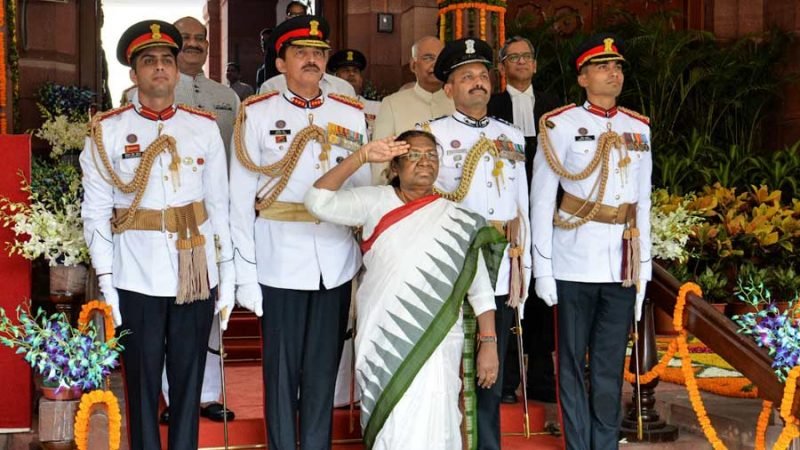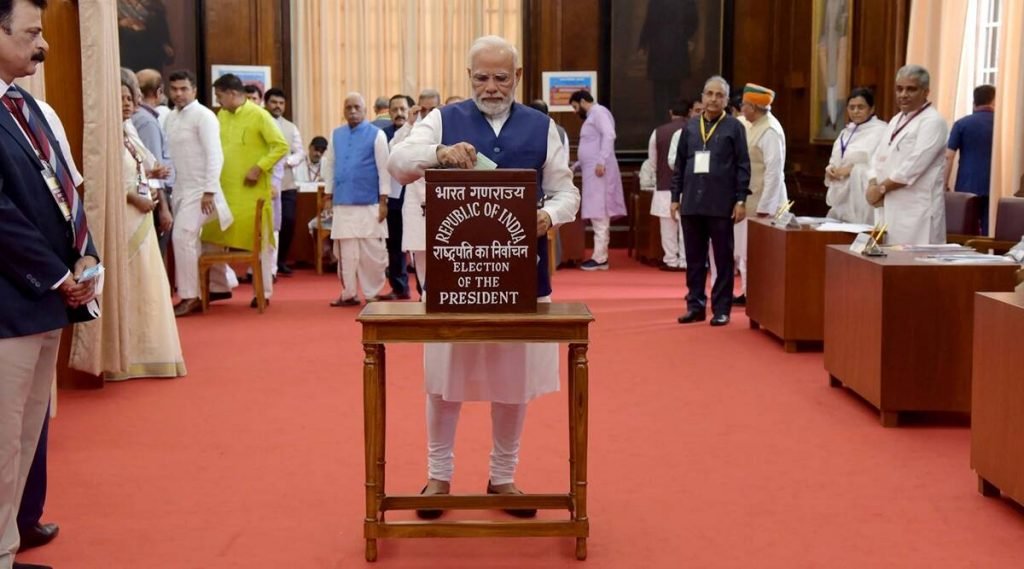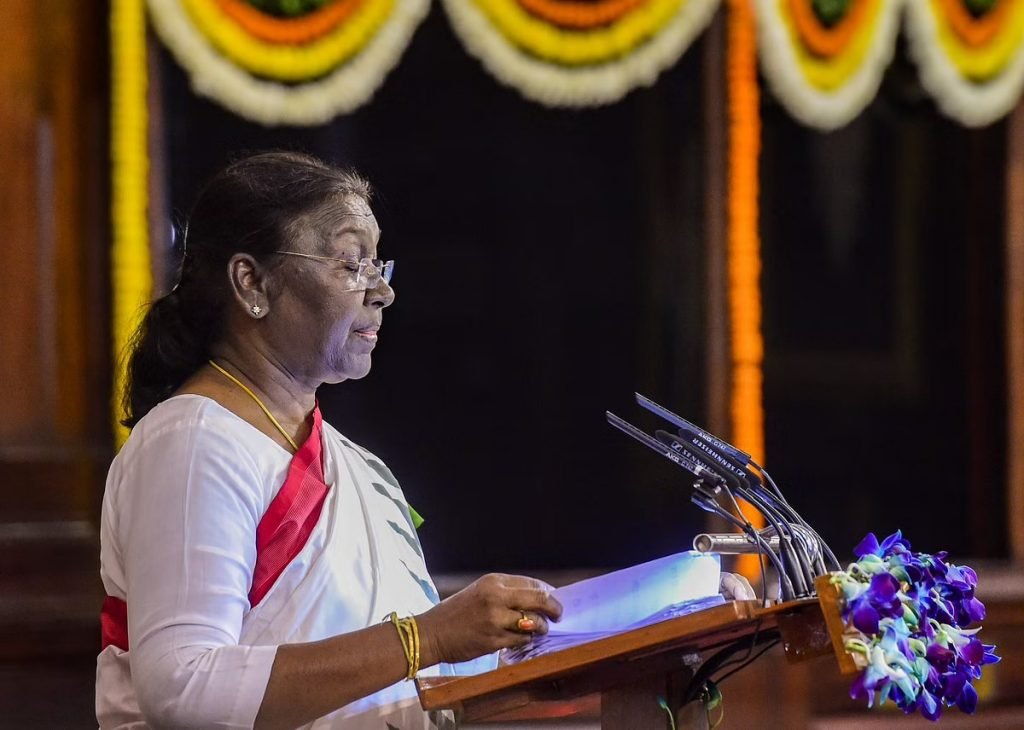Droupadi Murmu marks Political Triumph: Taking oath as President

“My elevation as president is not just my achievement but that of everyone in the country, that they can dream of reaching this level.” President Murumu said after taking the oath as the 15th President of India on 25th July 2022. India got its President, Droupadi Murmu who is the first tribal President and the second woman after Pratibha Patil to hold the office, marking a celebratory historic event in India’s Political History.
Draupadi Murmu, a nominated BJP candidate won with an impressive margin defeating the opposition candidate Yashwant Sinha. India’s first Tribal President, who is also the youngest Rashtrapati of India took oath on 25th July 2022 as Outgoing President Ram Nath Kovind’s tenure ended on 24th July 2022. The BJP-led NDA government nominated Droupadi Murumu for the highest post after a detailed discussion of 20 names. A former school teacher who later became the first women Governor of Jharkhand and is now sworn in as India’s new president is indeed an overwhelming and extraordinary episode for the citizens of the country.
Now here are some facts which should be clear to us regarding the appointment, nominations, and election process of the President of India. The President of India is elected indirectly as according to Article 54 of the Indian Constitution “The President shall be elected by the member of an electoral college consisting of the elected members of both Houses of Parliament and the elected members of the Legislative Assemblies of the States and Union Territories of Delhi and Puducherry.” The term “elected members” elucidate that no member who has been nominated to either house of the Parliament or the assemblies can participate in the election process.

Furthermore, for the candidate to be nominated for the Presidential post, he/she should have at least 50 MPs proposing the name and another 50 MPs seconding the candidature. Article 55 of the Indian Constitution provides for the manner of election of the President. According to Article 55 (3) of the Indian Constitution, “The elections of the President shall be held in accordance with the system of proportional representation by means of the single transferable vote and the voting at such election shall be by secret ballot.”
Droupadi Murmu secured 6,76,803 votes while Yashwant Sinha secured 3,80,177 votes. As many as 17MPs and 104 MLAs from the opposition have cross-voted for Murmu. As first preference votes secured by Droupadi Murmu were greater than the requisite quota, PC Mody, Secretary General, Rajya Sabha stated “ I in my capacity as Returning Officer declare that she has been elected to the office of President of India.”
Droupadi Murmu took oath as the 15th President of India at the Central Hall of Parliament. Dressed in a white saree with a green and red border, she took the oath of office in the name of God in Hindi to “preserve, protect and defend the Constitution and the law”. Chief Justice of India NV Ramana administered the oath of office of the highest constitutional post of the country. Vice President M Venkaiah Naidu, Prime Minister Narendra Modi, Lok Sabha Speaker Om Birla and luminary were present on the occasion.
PM Narendra Modi congratulated President Murmu and called it “Watershed Moment for Poor”. He expressed his confidence in her by stating that she will be an Outstanding President and said that India has scripted history with a daughter from the tribal community being elected to the top post.

In a country where so far, we have had only one female President and one female Prime Minister, being elected as President of the Country hailing from a tribal community is exemplary. In India, women empowerment and rights revolving around women are gathering momentum in the contemporary age and political triumphs like these bring a ray of hope among the citizens of the Country, especially among Women, who have been politically underrepresented.
Indian politics have a high gender imbalance. The fact that the world’s largest democracy elected a lady from the tribal community for the highest post of the country is a master stroke to demonstrate the new wave of change toward gender equality and social progress. It empowers women across the country and motivates women to be politically active and engaged. It is highly admirable to see the heights of success despite all the challenges, especially for women and nonetheless, for women belonging to SC, ST and OBCs to seek political success as caste-based politics and gender-related societal norms are deep-rooted in Indian Politics.
Having a female President will pave way for more women’s representation in Politics and will break the stereotype of women being politically incompetent. Though the 33% reservation Bill for women is pending and still women’s representation in politics is not in power with men, the current female President is no less than an inspiration. Her simplicity and humble background are a strong portrayal for women to be politically engaged.



















